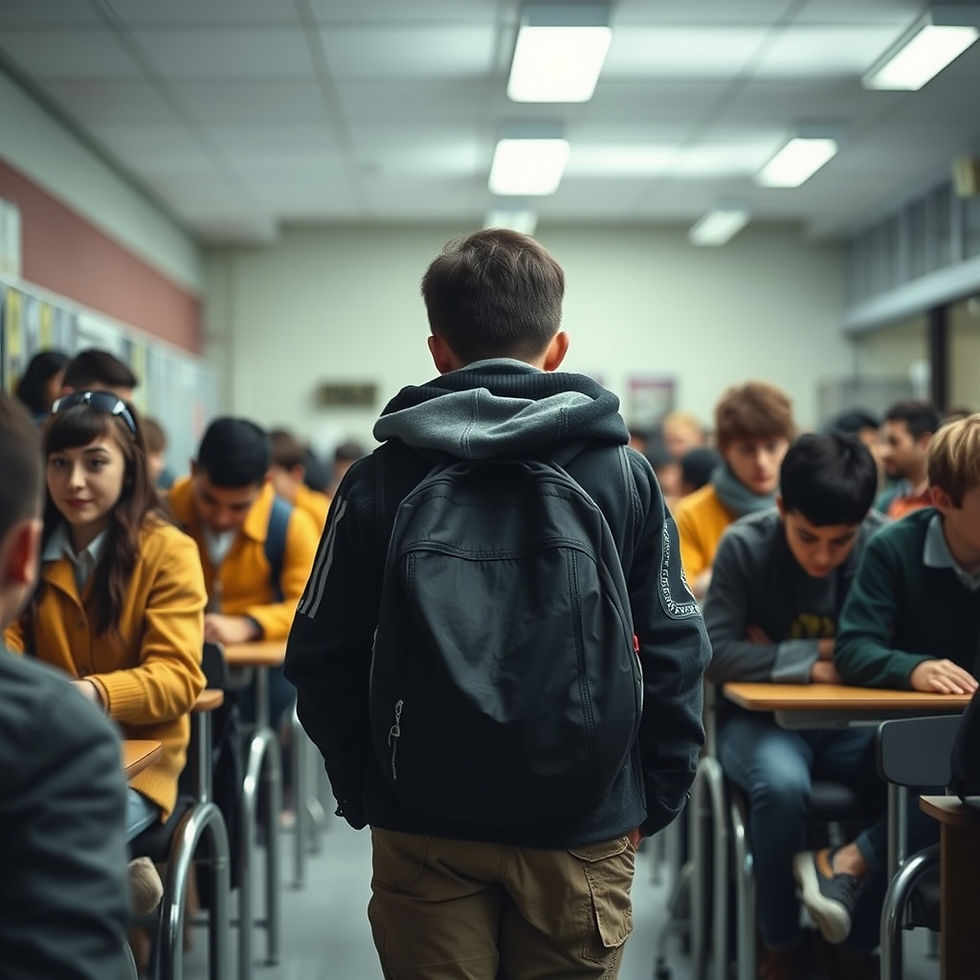Trauma
- Autumn Quiles, LCSW
- Jul 6, 2023
- 2 min read

Trauma happens when a human has an experience that doesn't make sense to them... an experience that, because it doesn't make sense, causes a host of disruptive, intense feelings.
I work with a lot of kids who have experienced trauma. Kids who are incredibly scared or sad or feel helpless. Many times, the trauma comes from their experience in their own family. These feelings are often accompanied by behaviors that are risky, defiant or despondent.
Kids are not a Person In Power in their world. Rather, their mom or their dad or their grandparent or their teacher or their coach is In Power. The People In Power make decisions about a child's experience that shapes their sense of safety... A parent decides to Hit or Not Hit. A parent decides to Stay or Go. A grandparent decides to Tell or Not Tell. A coach decides to Touch or Not Touch. When a Person In Power contributes to a child's experience that doesn't make sense for the child, trauma can happen.
Trauma is NOT defined by whether or not an Other believes that the child's experience was scary or confusing. An Other might believe that parents fighting or a Dad drinking or a coach being "touchy" is not scary or confusing. An Other might believe that leaving in the middle of the night or yelling in the heat of the moment or using a firearm are things done to Stay Safe- and thus, should not be confusing or scary. But, for kids, many of these things don't make sense emotionally. For kids, many of these things contribute to a deep feeling of being unsafe.
The child is the only person qualified to determine if their experience of a situation doesn't make sense or makes them feel unsafe. They are the only person who can tell us if their experience is causing them confusion and deep distress. A therapist's job, in part, is to help a child recognize that these disruptive and intense feelings are valid and define these feelings as a very typical response to trauma.
Healing from trauma is not something that happens quickly or independently, especially for a child. Most children need the support of an experienced therapist. They need support from safe adults who are mindful of their healing process. And, when a child has experienced trauma in their family, they need the opportunity (if it is available) to experience a new, healthy, relationship with the Person in Power who contributed to their experience of feeling unsafe. Kids who heal from traumatic experiences need a new village of safety and support, lest they go into adulthood and unintentionally re-create the dangerous relationship patterns they experienced as a child.
A skilled and experienced therapist can help a child, and their family, identify the child's intense and disruptive feelings as a symptom of trauma. A therapist who witnesses these feelings has the opportunity to help the child make sense of them, alleviating their confusion and distress and, eventually, helping to reduce or eliminate those risky, defiant and despondent behaviors. And... I am deeply honored and grateful to say that many families have trusted me to be this therapist for them.



Comments